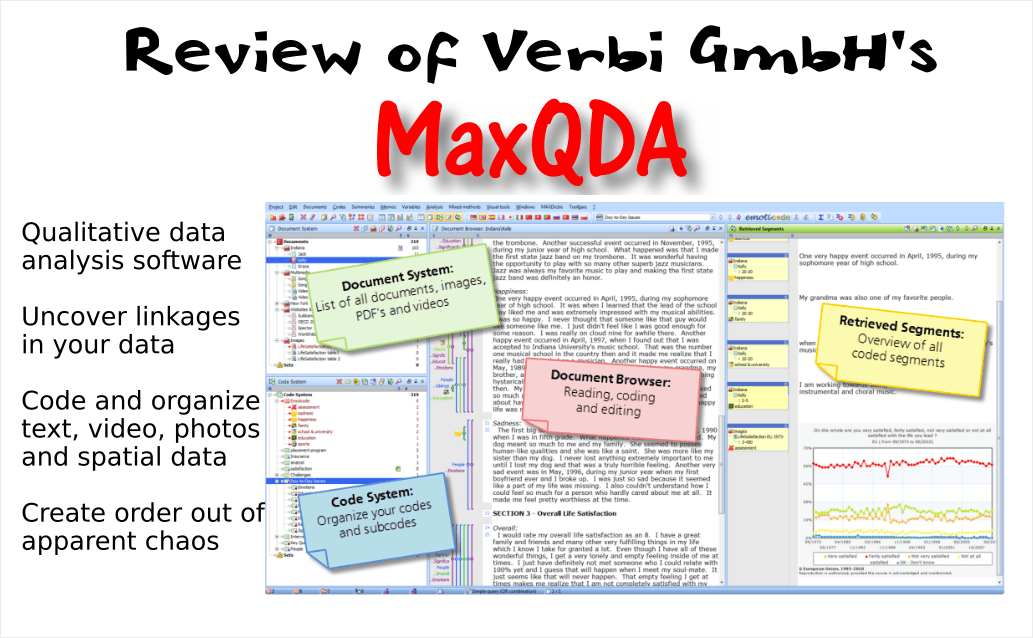MaxQDA Review (coming soon)
MaxQDA Review: A definitive solution for qualitative research (coming soon)
Research during my MA and PhD research in rural north China (1990-2014), I accumulated hundreds of interviews with villagers, martial arts masters, traditional doctors, businessmen, influential rural women, teenagers and children. Complimenting this data are tens of thousands of photos and hundreds of hours of video documentation of martial arts traditions, religious ritual and practice, healing methods and day-to-day living routines. Like so many other social science researchers, trying to understand the linkages between this data can seem like an overwhelming project.
The best solution I have found is to rely on Qualitative Data Analysis (QDA) software to code and categorize the textual, photographic, video in order to reveal spatial, temporal, economic and social inter-linkages among the diverse data sources.
Previous Experience with QDA Software- AtlasTI
In 2008, I originally began my qualitative analysis using AtlasTI, another big name in QDA software. However, but my student license was revoked by the company four years later claiming that I could no longer prove that I was a graduate student. AtlasTI announced that student licenses can only be used during the period of time one is registered as a student. After that time, the license would be cancelled. I explained to AtlasTI that when I bought the student license, the company overtly promoted it as “non-expiring”. After receiving my email, the company changed its website and denies they ever made such a claim. QDA analysis of such a large project is extremely time consuming and the last thing a researcher wants is for a company to cancel our license and strand us with years of work locked into a proprietary format. I found several similar complaints online. Based on this experience, I cannot recommend that a student or cash-strapped researcher begin using AtlasTI. Use it only if you can afford to buy the full licensed version. This will ensure you never lose access to your QDA project containing your data and painstaking analysis.
Forthcoming Project and Review- MaxQDA
Now I am finally ready to continue with the qualitative analysis of my data. For formidable, likely multi-year project, I plan on relying on MaxQDA software by VERBI GmbH. I am just beginning to use it and as I progress, I will make multiple posts describing how I use it, and how it contributes to theory building. I can already recommend it on the basis of their much fairer licensing policy for students. Students licenses for MaxQDA are not revoked when you finish your graduate studies. This is a crucial point that ensures that you do not lose access to your QDA project. If you want to continue to work on your project a year or more after you graduate, you’ll still be able to use your student licensed version to open your project, make changes, and even export data to other file formats.
A search for “Review of MaxQDA” revealed few hits. MaxQDA is one of the most powerful qualitative data analysis tools out there and I was somewhat surprised that there are so few articles discussing this software and its application to specific qualitative research projects. My aim is to write a series of articles here that introduce MaxQDA, and show why it is useful for ethnographic and other research projects that include texutal, photographic and video data.


